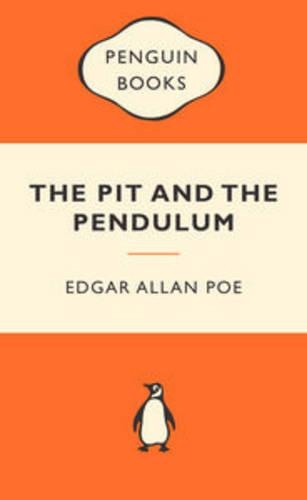
The Pit and the Pendulum: Popular Penguins
(Paperback)
Available Formats
Publishing Details
The Pit and the Pendulum: Popular Penguins
By (Author) Edgar Allan Poe
Penguin Books Ltd
Penguin Books Ltd
28th June 2010
United Kingdom
Classifications
Physical Properties
Paperback
238
Width 112mm, Height 180mm, Spine 15mm
146g
Description
Edgar Allan Poe is not only the finest, most terrifying writer of Gothic horror tales ever to have lived, he also wrote extraordinary poems. Here, Poe writes of the torments of ingenious, malevolent persecutors and of a mind's own sickening madness. The Pit and the Pendulum is a collection of works from a dark and brilliant genius.
Author Bio
Edgar Allan Poe (1809 - 49), was born in Boston, USA. His parents were actors but both suffered from tuberculosis and died in 1811. The two-year-old Edgar was taken in by John Allan, a wealthy merchant - hence the middle name. He had a very happy childhood as the only child of a rich family. He did well at school, especially in languages and athletics. In 1926 Edgar went to the University of Virginia. In his first term he did no work, spending his time on wine, women and song! He had a huge row with his step-father and ran away to join the army. A few years later Mrs Allan begged her husband to find him and make up the quarrel. This happened but the two men never managed to have a good relationship again. When his wife died, John Allan remarried and his new wife hated Edgar. So, by 1831 he was out in the world, alone and broke. Edgar was by now writing poetry but with little success. He did find a new family, an aunt and married her fourteen-year-old daughter. They moved from place to place and so Edgar moved from job to job getting the occasional story printed. They were very poor, often cold and close to starvation. His wife was ill and Edgar was almost an alcoholic. When his wife died, Edgar began to court wealthy widows and his writing became more and more tortured. George Bernard Shaw called him, 'the finest of finest of artists'; but he died alone in pain and poverty when he was only forty. Almost his last words were- 'I wish to God someone would blow my damned brains out.' - it is not difficult to see why some of his best-remembered stories are grotesque and macabre.
